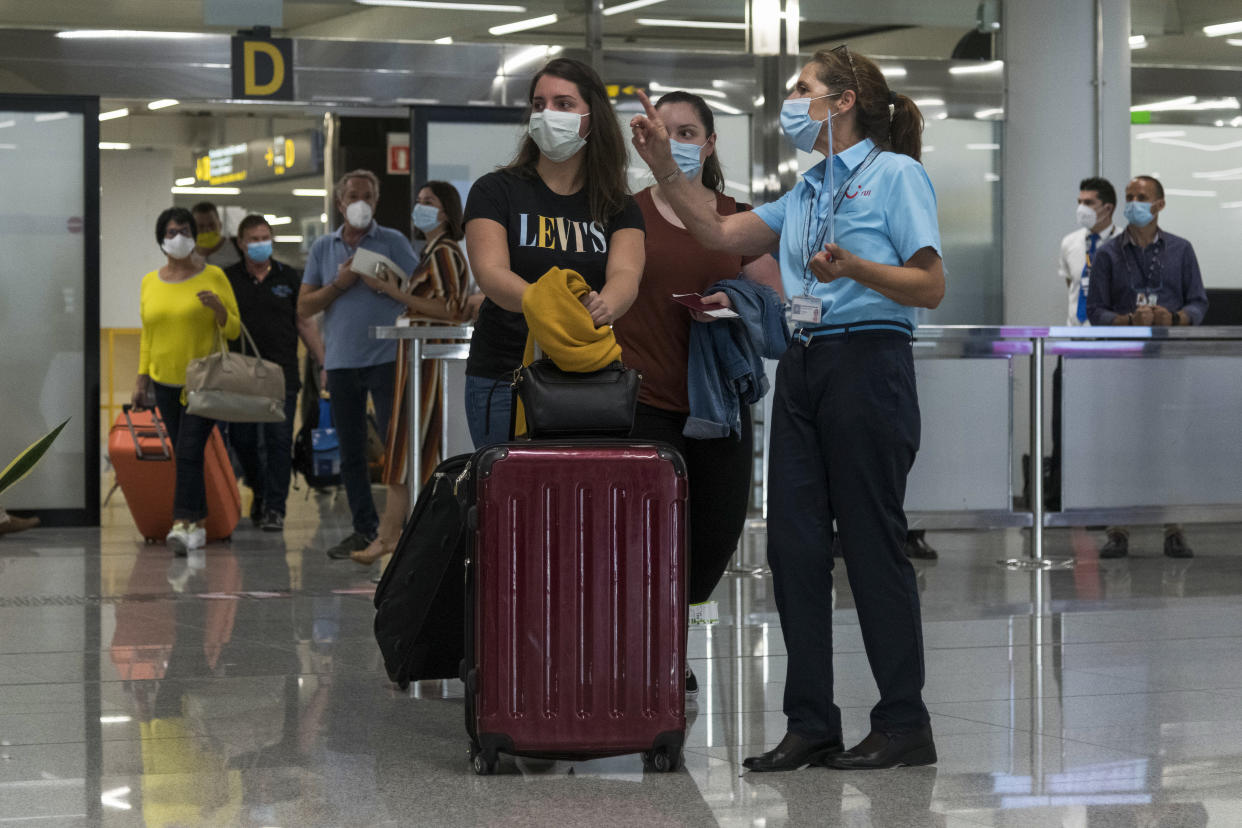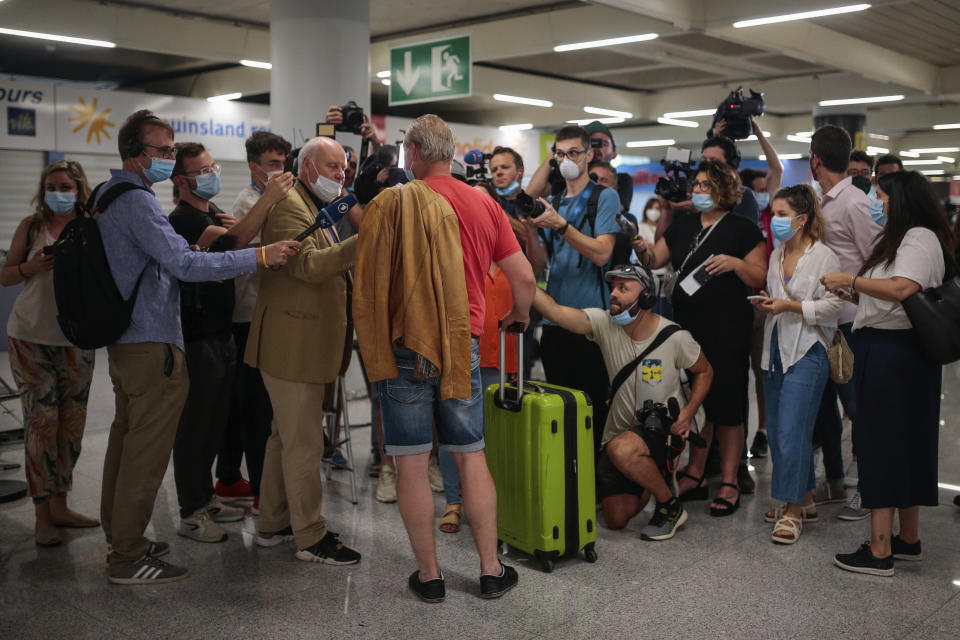Spain warns it could place British tourists in quarantine in tit-for-tat measure

Spain has warned it could place quarantine restrictions on UK tourists when the Mediterranean country opens its borders next week.
The UK’s travel quarantine was introduced on 8 June and means most international arrivals must self-isolate for 14 days.
Earlier this month, Boris Johnson said quarantine measures for almost all international travellers visiting the UK were vital to ensure the country’s rate of COVID-19 infection does not increase again.
The move, which has been widely criticised by the UK’s already struggling aviation industry, now faces further problems if Spain considers similar measures in retaliation.
"We will be checking what the UK will be doing and we will be in a dialogue with the UK to see whether or not we should be introducing reciprocity as they have different measures than the rest of the European Union," Spain’s foreign minister Arancha Gonzalez Laya told the BBC.

She said the situation was "fluid”, adding that Spanish officials would like to "properly engage in a dialogue with the UK authorities to make sure that we both take the message that best corresponds to the health situation, which today is a little bit better in Spain than it is in the UK".
She added: "Hopefully by the time we open our borders, the UK would have moved forward also.”
Under the UK quarantine, arriving travellers can only leave isolation for urgent medical attention, support from social services, food and medicine, a funeral of a close relative or an emergency.
Passengers must fill out an online locator form giving their contact details and the address where they will isolate.
On Tuesday, transport secretary Grant Shapps indicated that so-called “air bridges” with other nations, that would allow travellers to avoid self-isolation, could be announced by the end of next week.
He told LBC Radio the government is "actively working" on introducing travel corridors amid concerns the quarantine policy is damaging the travel and tourism industry.
The government’s first review of its quarantine policy is scheduled for 29 June.
The government’s UK quarantine plan has been criticised by British Airways, with its chief executive Willie Walsh calling it “irrational” and “disproportionate”.
However, on Saturday, BA was called a “national disgrace” by the transport select committee, who accused the airline of trying to take advantage of the coronavirus crisis to cut 12,000 jobs.
Walsh responded by saying the airline is “fighting for its survival”.
On Sunday, Spain confirmed it will reopen its borders to most European visitors from 21 June – 10 days earlier than previously planned – in a further easing of coronavirus restrictions but a week later than some other EU member states.
From 21 June, when Spain's state of emergency ends, it will allow the entry of visitors from the EU and the open-border Schengen area, which also includes non-EU countries such as Switzerland and Norway.
European nations eased border controls on Monday as coronavirus cases declined after three months of lockdown, with German tourists heading for Mallorca as part of a pilot scheme and French bargain-hunters streaming into Belgium to buy cheap cigarettes.
Watch the video below
Greece allowed more international flights as it sought to salvage the summer season, while German tourists flocking to neighbouring Denmark caused a five-mile queue and Italians popped into France to buy lottery scratch cards.
Spain is initially allowing in about 1,500 visitors from Germany as part of a pilot project to begin opening up the Spanish tourism market in the coming weeks.
Hundreds of German tourists, the first to visit Spain since borders were closed in March, arrived in Mallorca on Monday on a flight from Düsseldorf.
They passed signs reminding them in German and Spanish to wash their hands and wear masks, then queued at a distance from each other to have their temperatures read and paperwork checked by border staff, who also had their faces covered.
The pilot scheme will eventually host about 10,000 German tourists up to 1 July.
"Holidaymakers can be happy that the beaches in Palma have never been so empty," said Aage Duenhaupt, a spokesman for travel company TUI. "But there won't be parties in the same way this year."

The Schengen area of 22 EU countries plus Iceland, Liechtenstein, Norway and Switzerland operates control-free crossings. But for three months they have been mostly closed.
Officials hope lifting internal border controls will allow a gradual reopening to other countries from July and revive a tourism industry that flatlined during the lockdown.
In Greece, passengers arriving from airports deemed high-risk will be tested and quarantined for up to 14 days, depending on the result. Restrictions remain for passengers from the UK and Turkey.
Elsewhere, the Czech Republic has a traffic-light system, barring tourists from “orange” or “red” countries such as Portugal and Sweden.
Denmark will accept tourists from Iceland, Germany and Norway, but not Sweden, if they book at least six nights' accommodation.
Coronavirus: what happened today
Click here to sign up to the latest news, advice and information with our daily Catch-up newsletter
Read more about COVID-19
How to get a coronavirus test if you have symptoms
How easing of lockdown rules affects you
In pictures: How UK school classrooms could look in new normal
How public transport could look after lockdown
How our public spaces will change in the future
Help and advice
Read the full list of official FAQs here
10 tips from the NHS to help deal with anxiety
What to do if you think you have symptoms
How to get help if you've been furloughed

 Yahoo News
Yahoo News 


